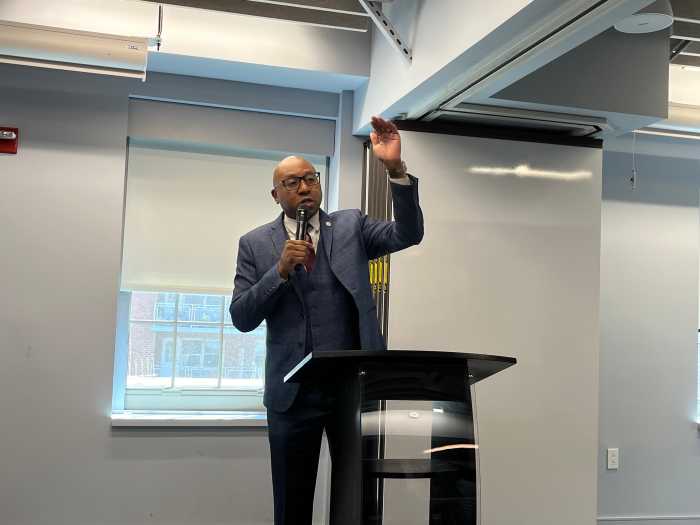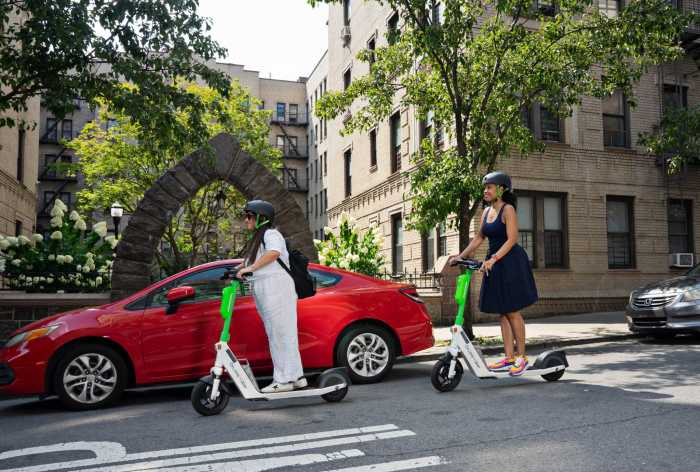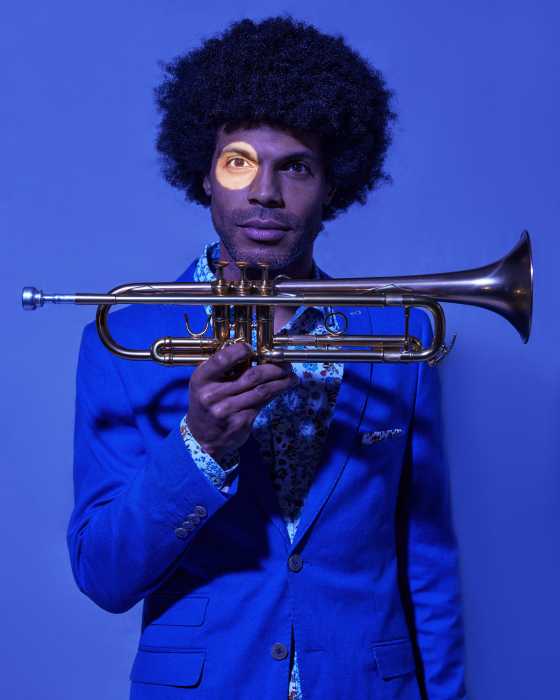Eighteen-year-old Mohammad Sarfaraz Hussain is as American as apple pie. The Jamaica HS senior wears Yankee jerseys and baggy clothes, and fantasizes of playing basketball for the New York Knicks. He also lives in a picturesque section of Holliswood with an uncle who is a doctor and drives around in a Mercedes. His life sounds like the backdrop for the television comedy, "The Fresh Prince of Bell Aire," but with a twist: he was almost deported recently because of a new law enacted to collar terrorists.
Hussain is no terrorist, but he shares the same identifiable characteristics that the federal government associates with terrorists: the Muslim religion, the olive colored skin, the Middle Eastern background. Even though his life is more representative of the American dream than an argument for harsher immigration laws, during the last several months, Hussain had to prove to the United States that he was not a threat to the countrys national security.
His illegal status set off red flags with immigration officials from the Special Registration system a program set up by the federal government following 9/11 to identify terrorists. The program requires citizens from Arab and Muslim countries older than 16 to register with the United States government. Its supposed to protect the American way of life. For Hussain, it almost destroyed his dreams of one day playing basketball in the NBA.
"The people who are targeted by this program are the furthest people from terrorists," said Hussains attorney, Elizabeth OuYang. "Thats the irony of the situation. The people who are called in are the ones who want to comply with the law."
Born in Pakistan, Hussain came to the United States in 1993 on a tourist visa to visit his mother who was sick with cancer. She was on the verge of obtaining her permanent residency when she passed away, causing Hussain, only seven at the time, to live with his uncle in Holliswood. Three years ago, his father, who was still in Pakistan waiting for his residency claims to be approved, died of a heart attack. The death of his parents dashed any hopes Hussain had of becoming a legal immigrant in the United States at the time. Hussain lived with his uncle, Dr. Kamal Ahmed, a gynecologist, absorbing Americas customs so completely that he saw no reason to renew his visa, which had expired over a decade ago. He didnt need a piece of paper to tell him he was an American.
"The culture here became his fabric of life," said DeWitt Thomson, his basketball coach at Jamaica HS. "Even though he is Muslim, he identified with this culture. That was important because he felt like an American. He had become Americanized."
He was reminded of his status after 9/11 when the United States, in an effort to crack down on suspected terrorists, required people from specific countries to get fingerprinted, photographed and interviewed with Special Registration services.
Government officials told Hussain that because he had overstayed his visa, deportation proceedings would begin immediately. Up to that point,Hussain, a care-free and confident teen, never thought for once that he would be deported to Pakistan where he had no family ties and could barely speak the language.
"I took it lightly at first," he said. "If I was there now in Pakistan,then I would understand how serious the situation was. I always try to picture myself in other peoples shoes. I didnt think anything would happen. I was confident that it would all work out."
Hussain may have taken the situation a bit lightly, but his uncle didnt.
"The fear was that he would be running around in the streets of Pakistan," said Ahmed. "There is nobody there that he knows. He doesnt know the customs there. He would be looked at differently than the others. He would get singled out."
Fortunately for Hussain, his plight received an extraordinary amount of attention and support from the press and public as well as from school officials. The New York Times published an article documenting his situation. And Congressman Gary Ackerman went to bat for Hussain after reportedly reading the story. Ackerman campaigned vigorously with the interim director of the citys Bureau of Immigration and Customs Enforcement, Edward McElroy, to pardon him. Coach Thomson, who is also a dean at Jamaica HS, in a strange twist of fate, was once a student of McElroys. His big-time connections added up, and on May 1, Patricia Rohan, an immigration judge,dismissed his case.
"His case had strong humanitarian grounds," said OuYang, in describing what made the case so unique. "He was hard working. He didnt have a criminal record. He was loyal to the US."
Hussain was lucky to have an attorney steer him through the complex Special Registration process. Having advised a number of people during the process, OuYang is highly critical of what she feels is a harmful, ineffective system designed to trap innocent people instead of uncovering criminals.
"I dont think the program is designed to unearth terrorists," she said. "A terrorist isnt going to turn himself in and register. I feel like local laws dont have the resources to carry out the federal mandate. If a program is under resourced and if the program cant be run efficiently, then it isnt good."
Hussains experience with the Special Registration program supports OuYangs claims.
The two waited hours outside in the freezing cold to register at 226 Federal Plaza, and lingered in a massive waiting room for several more hours until they were called. People who had visas that had expired were whisked to the tenth floor without the presence of an attorney. Hussain saw things on the tenth floor he will not likely forget people screaming at men from Muslim countries and North Korea, attempting to catch them in a lie.
"There were a lot of repeated questions to the people who were trying to get registered. There was a lot of tricky questioning," he said. "They would repeat the same question over and over again, like did you do it? They would ask people what organization they were in. They would scream at you. They asked me a lot of questions that I didnt understand. I honestly believe that the policy is designed not for terrorists, but to find people who are out of status from Middle Eastern countries."
The ordeal made him feel like an outsider for the first time in his life. Hussain had always thought of himself as an American, but now circumstances were challenging that perception and forcing him to ask questions of himself he had never thought of before: Am I an American? After what happened, do I want to stay in America? Instead of driving him away, the experience had a galvanizing effect on him.
"This whole situation made me feel different," he said. "Im the type of kid who likes to experience to new things, but going to another country would have been a lot to take. I never really thought about leaving this country. But there would have been a lot that I would have missed if I had to leave. I really want to play professional basketball one day. If I had gone to Pakistan, I probably wouldnt have been able to chase my dreams. Now I can do what I want to do."



































